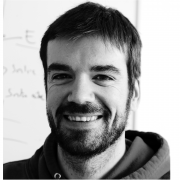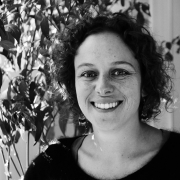
DANMARKS TEKNISKE UNIVERSITET
Européen
H2020
Grant agreement ID: 101000318
Début du projet
01/10/2021
Fin du projet
30/09/2025
An innovative network paving the way for Ecosystem Based Fisheries Management in Europe
The SEAwise project works to deliver a fully operational tool that will allow fishers, managers, and policy makers to easily apply Ecosystem Based Fisheries Management (EBFM) in their own fisheries. With the input from advice users, SEAwise identifies and addresses core challenges facing EBFM, creating tools and advice for collaborative management aimed at achieving long-terms goals under environmental change and increasing competition for space. SEAwise operates through four key stages, drawing upon existing management structures and centered on stakeholder input, to create a comprehensive overview of all fisheries interactions in the European Atlantic and Mediterranean. Working with stakeholders, SEAwise acts to:
- Build a network of experts – from fishers to advisory bodies, decision makers and scientists – to identify widely-accepted key priorities and co-design innovative approaches to EBFM.
- Assemble a new knowledge base, drawing upon existing knowledge and new insights from stakeholders and science, to create a comprehensive overview of the social, economic, and ecological interactions of fisheries in the European Atlantic and Mediterranean.
- Develop predictive models, underpinned by the new knowledge base, that allow users to evaluate the potential trade-offs of management decisions, and forecast their long term impacts on the ecosystem.
- Provide practical, ready-for-uptake advice that is resilient to the changing landscapes of environmental change and competition for marine space.
The project links the first ecosystem-scale impact assessment of maritime activities with the welfare of the fished stocks these ecosystems support, enabling a full-circle view of ecosystem effects on fishing productivity in the European Atlantic and Mediterranean. Drawing these links will pave the way for a whole-ecosystem management approach that places fisheries at the heart of ecosystem welfare. In four cross-cutting case studies, each centred on the link between social and economic objectives, target stocks and management at regional scale SEAwise provides:
- Estimates of impacts of management measures and climate change on fisheries, fish and shellfish stocks living close to the bottom, wildlife bycatch, fisheries-related litter and conflicts in the use of marine space in the Mediterranean Sea,
- Integrated EBFM advice on fisheries in the North Sea, and their influence on sensitive species and habitats in the context of ocean warming and offshore renewable energy,
- Estimates of effects of environmental change on recruitment, fish growth, maturity and production in the Western Waters,
- Key priorities for integrating changes in productivity, spatial distribution, and fishers’ decision-making in the Baltic Sea to create effective EBFM prediction models.
Vers une gestion durable de la pêche dans les écosystèmes européens
Le projet SEAwise, financé par l’UE, répondra à la nécessité d’accroître les bénéfices de la pêche tout en réduisant les incidences sur les écosystèmes dans un contexte de changement environnemental et de concurrence accrue pour l’espace. Le réseau constitué de parties prenantes, d’organes consultatifs et de scientifiques améliorera les prévisions de productivité des stocks en utilisant des paramètres environnementaux, la dépendance à la densité, la prédation, les indicateurs de santé des stocks et l’étendue de l’habitat. En outre, des modèles multi-espèces-multiflux fourniront des prévisions écosystémiques sur l’impact des mesures de gestion de la pêche. Les outils et les cours de SEAwise, destinés aux parties prenantes comme aux décideurs, garantiront que ces méthodes sont directement applicables aux eaux de la Méditerranée, de l’Europe occidentale, de la mer du Nord et de la Baltique. Les prévisions alimenteront un outil de conseil en ligne mettant en évidence les effets sociaux et écologiques spécifiques aux stocks et aux pêcheries ainsi que les compromis possibles en matière de gestion.
Implication d’Amure dans le projet
L’équipe de l’UMR AMURE (UBO et IFREMER) participe au WP 2 « Les effets sociaux et économiques de la pêche et sur la pêche » et plus particulièrement à la réalisation des deux actions du WP 2 portant respectivement sur la gouvernance de la pêche et les aspects sociaux des mesures de gestion sur la pêche.


